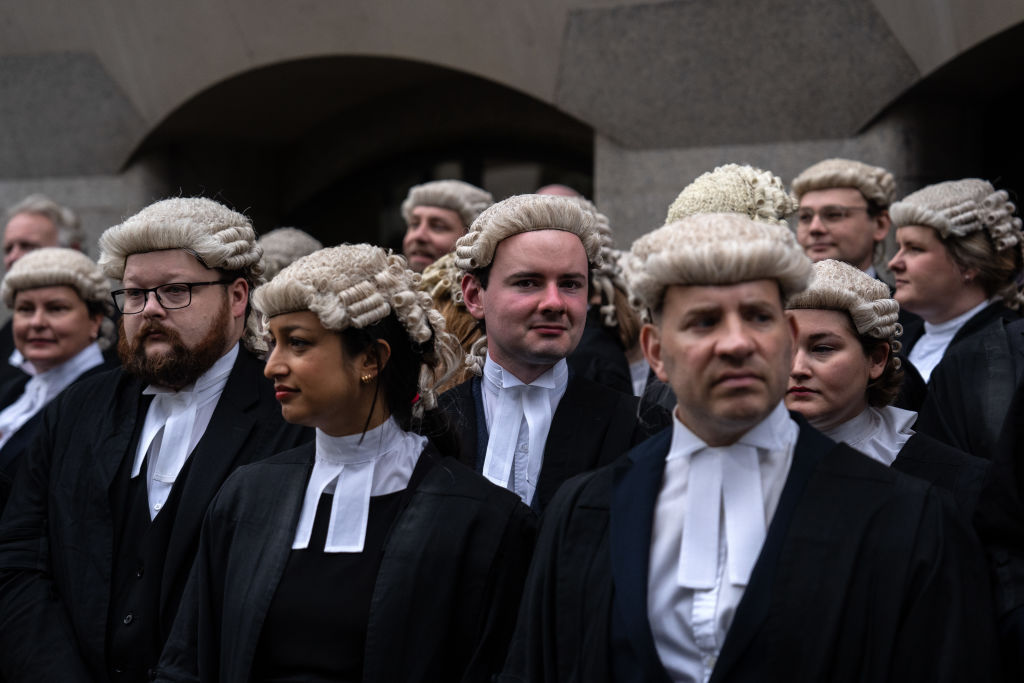My not-so-learned friends: an epidemic of puffed-up Twitter famous barristers

Legal qualifications are nothing to be sniffed at, but they don’t give you expertise on all fields, least of all every debate on Twitter, writes Eliot Wilson
Social media contains a contradiction. It is by nature enormously democratic and levelling: everyone has access to the same platform, has the same number of characters in which to express themselves and has the same potential to be seen by the general public. Yet at the same time that inherent equality tends to confer advantage on those who can boast some expertise. They have the specialist knowledge and the status to stand out from the multitude.
One group which has fought its way into the spotlight recently is members of the Bar of England and Wales. One of the most high-profile of this new online legal elite is Jolyon Maugham KC, a tax law specialist with 425,000 followers on Twitter who founded the Good Law Project in 2017. The GLP is an activist group which seeks to achieve policy change through the courts. It has been supporting a case by transgender activists Mermaids to challenge the designation of the LGB Alliance as a charity; the case was dismissed last week because Mermaids has no standing. The GLP described this as a “technical ground”, though it is one of the most fundamental elements of a case.
Maugham is not the only barrister out there practising advocacy beyond the courtroom. Steven Barrett, who specialises in commercial and financial services, has been writing for The Spectator and tweeting since 2020, mainly on political, parliamentary and constitutional issues. He is especially supportive of Brexit and Boris Johnson, acts as a consultant to Johnson cultist the Conservative Democratic Organisation, and is a Conservative councillor in the Chilterns. He has been very exercised by the House of Commons Committee of Privileges’ inquiry into Johnson’s lying to Parliament, criticising the committee, which is not a court, for not acting like a court.
From the family bar comes Dr Charlotte Proudman, another Twitter grandee with nearly 80,000 followers. She acts for victims of male violence against women, and alongside her legal practice is a fellow of Queens’ College, Cambridge, in law and sociology, with a doctorate in the law and policy on female genital mutilation. Proudman has written extensively on sexism in public life, particularly as it is reflected in the law.
I am not a lawyer, and am generally very cautious in commenting on, let alone challenging legal experts on, matters of law. Where I reluctantly but firmly do push back against learned friends is in exploiting professional status in general matters of public debate. I refer to the specialisations of the barristers named above because lawyers mostly have their own bailiwicks. From chancery to admiralty law, these practice areas are discrete and often technical. But there is a growing trend for counsel to roam beyond their natural hunting ground and campaign on many areas of public policy.
Of course they are as entitled to do this as anyone. My concern is that people will see the legal qualification and read across to assume expertise in whatever is being discussed. This may not be deliberate deception, but those with professional standing are undoubtedly aware of the power of their status, of how their legal standing elevates their interjections. Whether it is a sin of omission or commission, hiding under a wig is potentially an unfair advantage. There is also a tendency—Barrett does this often—to present themselves as disinterested observers giving legal commentary, rather than political partisans just as dirty with the dust of the arena as the rest of us.
Twitter has more than 23 million users in the UK—that’s more than one in three of us. So whether we like the platform or not, it is a potent pulpit, fully part of the ecosystem of how we talk to each other about society. That opportunity, especially for those with tens of thousands of followers, must carry with it a responsibility to be who you are, and be aware of who you might seem.
Barristers, as a regulated profession, need to keep that in mind, and exercise a little humility when speaking in mufti. If they do not, there is a risk of a wider public backlash which could threaten not only their standing but the whole notion of expertise and authority. And those are qualities which, God knows, social media cannot afford to be without.